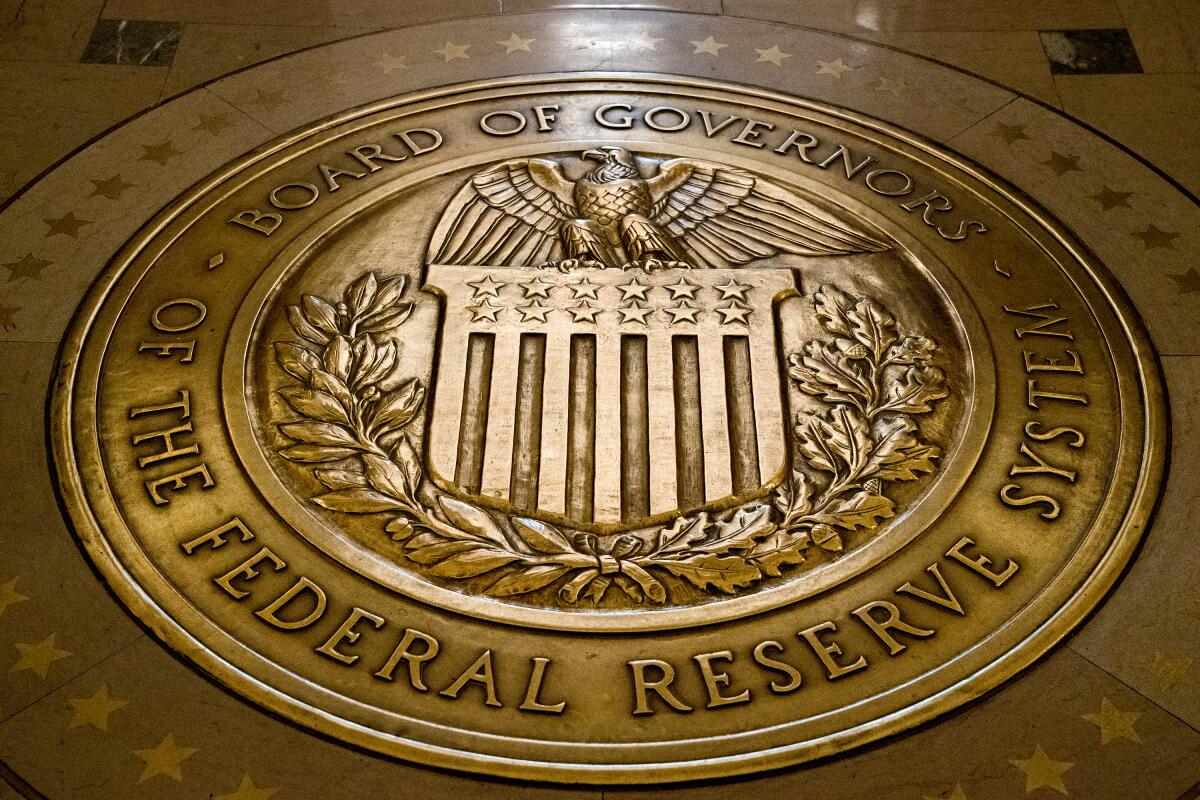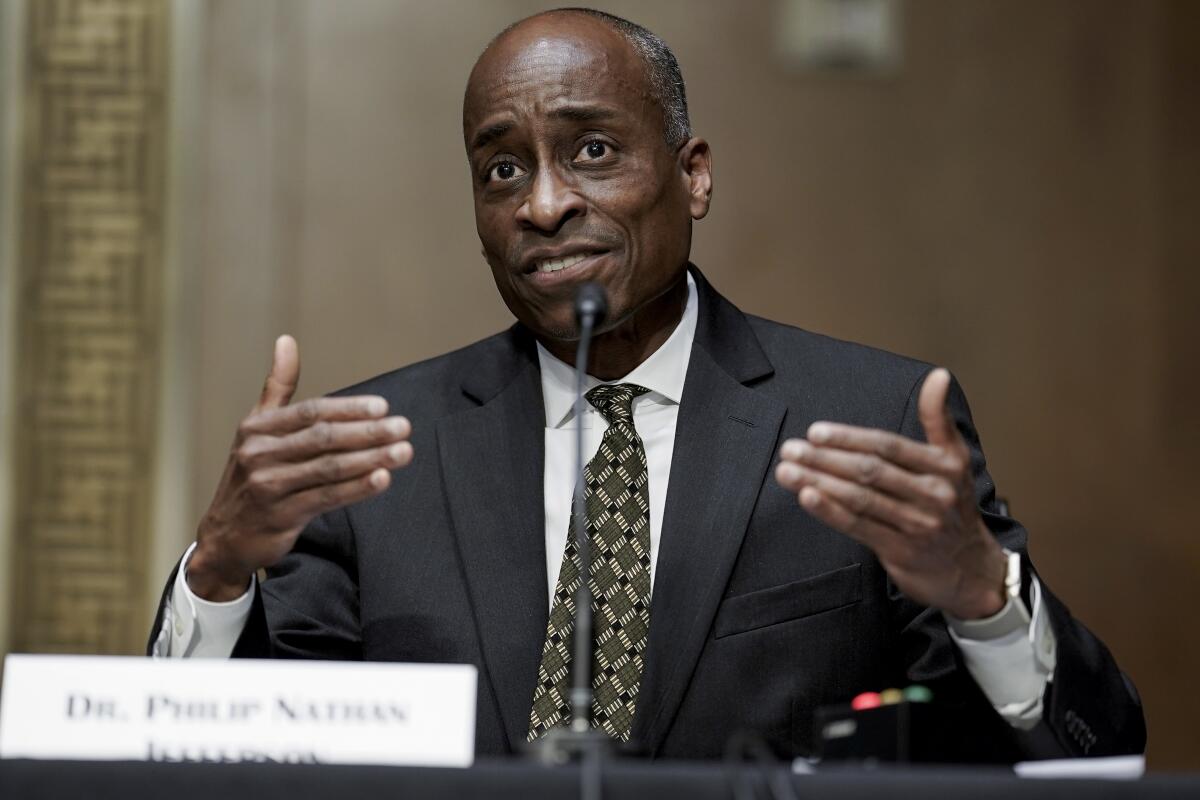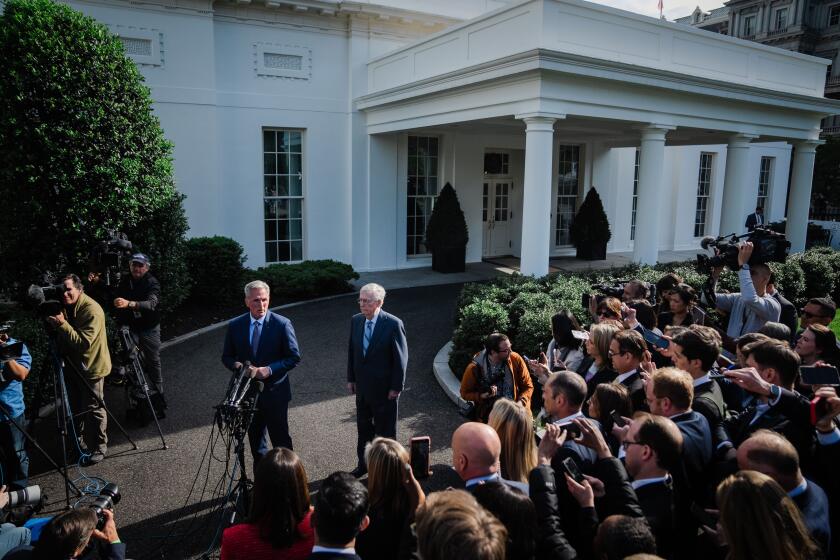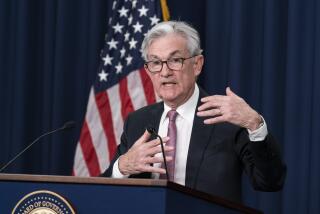Biden to nominate economist Adriana Kugler to Fed board, the first Latina in 109 years

President Biden’s latest picks for the Federal Reserve would further transform the diversity of the U.S. central bank’s leadership in just two years.
Biden said Friday that he will nominate economist Adriana Kugler, a Colombian American economist who is the U.S. representative to the World Bank, as the first Latina to serve on the Fed’s Board of Governors in its 109-year history.
Philip Jefferson, who was sworn in as a governor last May, will become the second Black person to serve as its vice chairman.
Biden also announced his intent to nominate Lisa Cook, 58, who became the first Black woman to join the Fed board last year, to a full 14-year term. Her current term expires in January.
The nominations, which require Senate confirmation, come after mounting pressure from Sen. Robert Menendez of New Jersey — who has long called for Biden to nominate a Latino person to the Fed — and other Democratic lawmakers. The administration had considered naming a non-Latino person to the vice chair position and leaving Jefferson as a governor, according to people familiar with the discussions.

“These nominees understand that this job is not a partisan one, but one that plays a critical role in pursuing maximum employment, maintaining price stability, and supervising many of our nation’s financial institutions,” Biden said in a statement Friday. “I am confident these nominees will help build upon the historically strong economic recovery we have had under my administration.”
The nominations were made at a time of economic angst, with the nation facing a possible default if Congress fails to raise the debt ceiling, the financial industry shaken by bank failures and the Fed trying to extinguish inflation without triggering a recession.
Kugler, 53, was, tapped to fill a vacancy created when then-Vice Chair Lael Brainard left in February to head Biden’s National Economic Council. Kugler was confirmed last year as U.S. representative to the World Bank in a voice vote. If confirmed to the Fed post, Kugler would serve a term that expires in January 2026.
She holds a doctorate in economics from UC Berkeley and served as chief economist at the Labor Department in President Obama’s administration. Her research on labor markets, in particular, will probably be welcomed by progressive lawmakers who have argued that the Fed’s aggressive actions to curb inflation may lead to widespread job losses.
“She understands what the Fed is about — both the bad effects of inflation but also at the same time how putting the brakes on the economy might affect different groups differentially,” said Alfonso Flores-Lagunes, president of the American Society of Hispanic Economists and an economics professor at Syracuse University.
Flores-Lagunes said the nomination was “fundamental,” calling the lack of Latino representation at the Fed a “glaring aspect of inequality” in the U.S.
Latinos are the nation’s largest ethnic or racial minority with 18.9% of the population, yet few ascend to the pinnacle of U.S. corporate power: board member.
Jefferson, 61, who spent the bulk of his career in academia, was an economist at the Fed’s Board of Governors in the 1990s. He has a doctorate in economics from the University of Virginia.
He was confirmed to the board in a 91-7 Senate vote last year, with Republicans praising his commitment to the Fed’s narrow mandates and Democrats applauding his research on poverty and diversity.
The lopsided previous confirmation vote raises the prospect of a relatively smooth path to the vice chair post — though that was effectively a dual-track process in which another candidate, Cook, drew heavy Republican opposition.
The move is a concession to dynamics in the Senate and, chiefly, Menendez.
“I have fought to ensure that institutions like the Federal Reserve better reflect America with the goal of effectuating policies to encourage broad-based economic growth for all communities,” Menendez said Friday in a statement. “President Biden is signaling that the hopes and dreams of Black and Latino Americans are central to the promise of America.”
An eleventh-hour deal saved the U.S. from defaulting on its debts in 2011. The brakes aren’t as reliable this time.
With a slim majority in the Senate — Democrats hold 51 seats to Republicans’ 49 — Biden couldn’t afford to nominate candidates that wouldn’t garner support from his own party, as a non-Latino candidate might have done. Menendez voted against the renomination of Jerome H. Powell last year, criticizing the Fed chair for not elevating Latinos to leadership positions at the central bank.
The White House was initially said to have zeroed in on Northwestern University professor Janice Eberly to replace Brainard, both as a governor and as vice chair.
But Menendez insisted on a Latino candidate, reprising calls made during past vacancies at the Fed’s board and the reserve banks, arguing that the country’s monetary policy making institution should be representative of the overall population, 19% of which is Latino.
Kugler will bring labor-market expertise to the central bank at a pivotal time.
After a year of rapid interest rate increases to cool inflation, Fed officials this month signaled a willingness to pause and assess the effects of tighter monetary policy on segments of the economy, including the labor market.
Kugler’s past research into workforce issues such as youth employment and unemployment insurance could prove especially helpful as the Fed navigates this new phase in policy.
One key question is whether Kugler will take a more skeptical view of the need to raise rates further to tame high inflation, especially if the labor market starts to weaken significantly.
Brainard was one of the Fed’s most dovish members, and progressive Democrats have called on the White House to nominate a candidate who would take a similar view and serve as a counter to what they see as Powell’s singular focus on taming prices.
Born in the U.S. to Colombian parents, Kugler spent part of her upbringing in Bogota and has also published extensively on international development.
She comes from a family of economists. Her father was an economist who worked with the World Bank on development projects throughout South and Central America, and her brother, Maurice Kugler, is a professor of public policy at George Mason University.
Kugler’s grandparents fled Europe in 1939, leaving behind relatives who died in concentration camps during the Holocaust, she said at her 2021 Senate confirmation hearing.
Dave Merrill and Ana Monteiro of Bloomberg contributed to this report.












